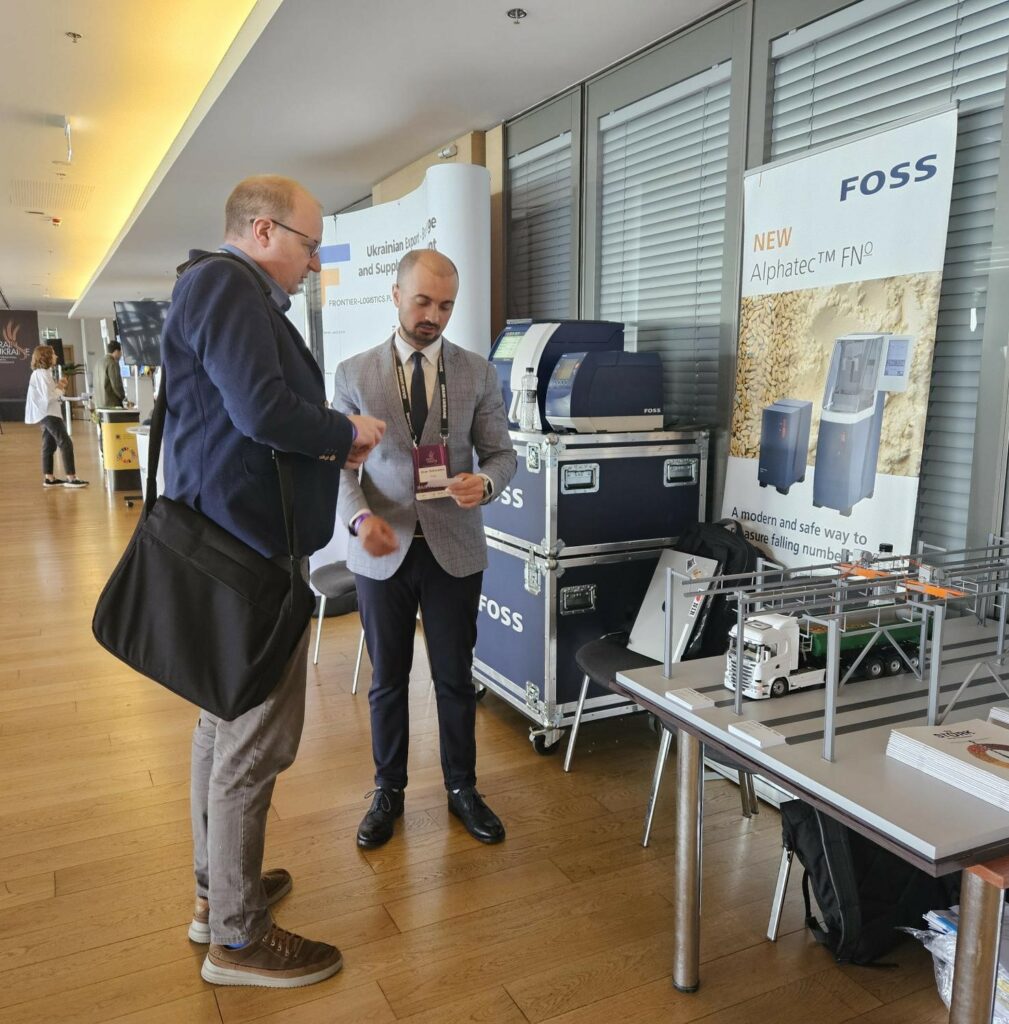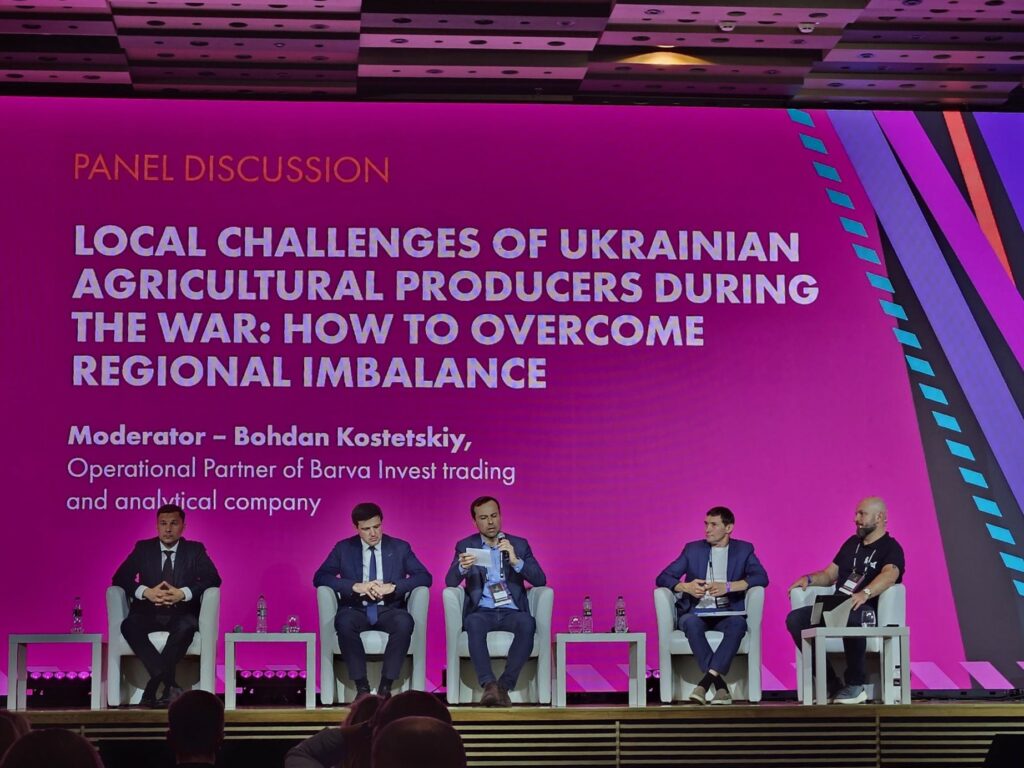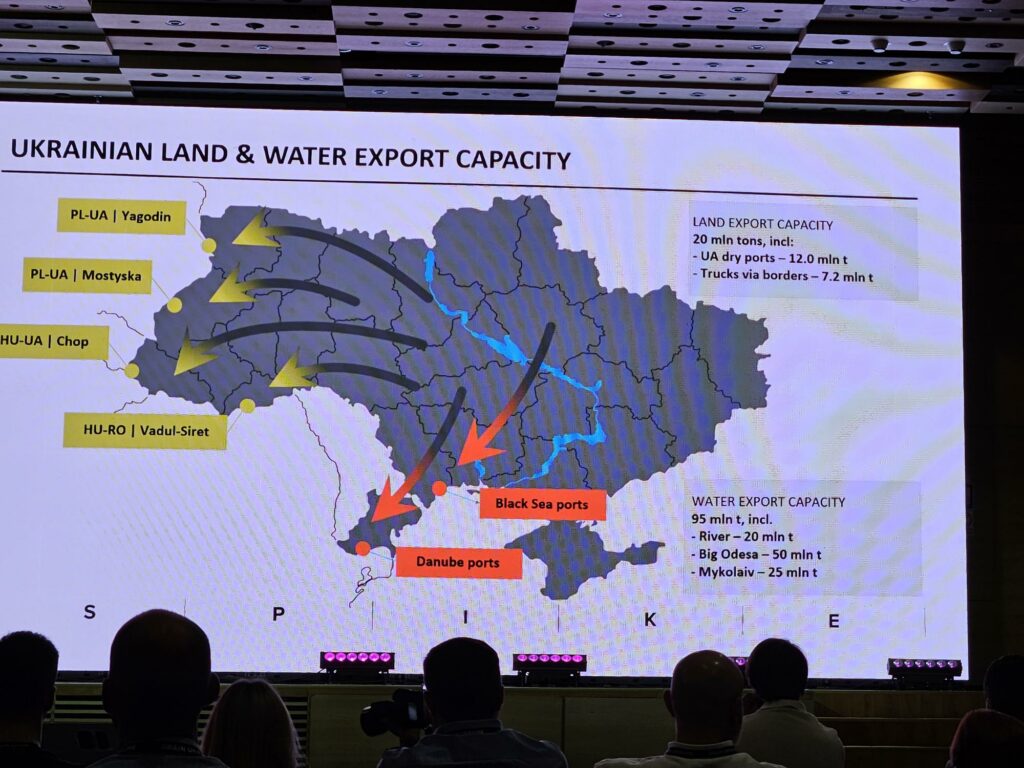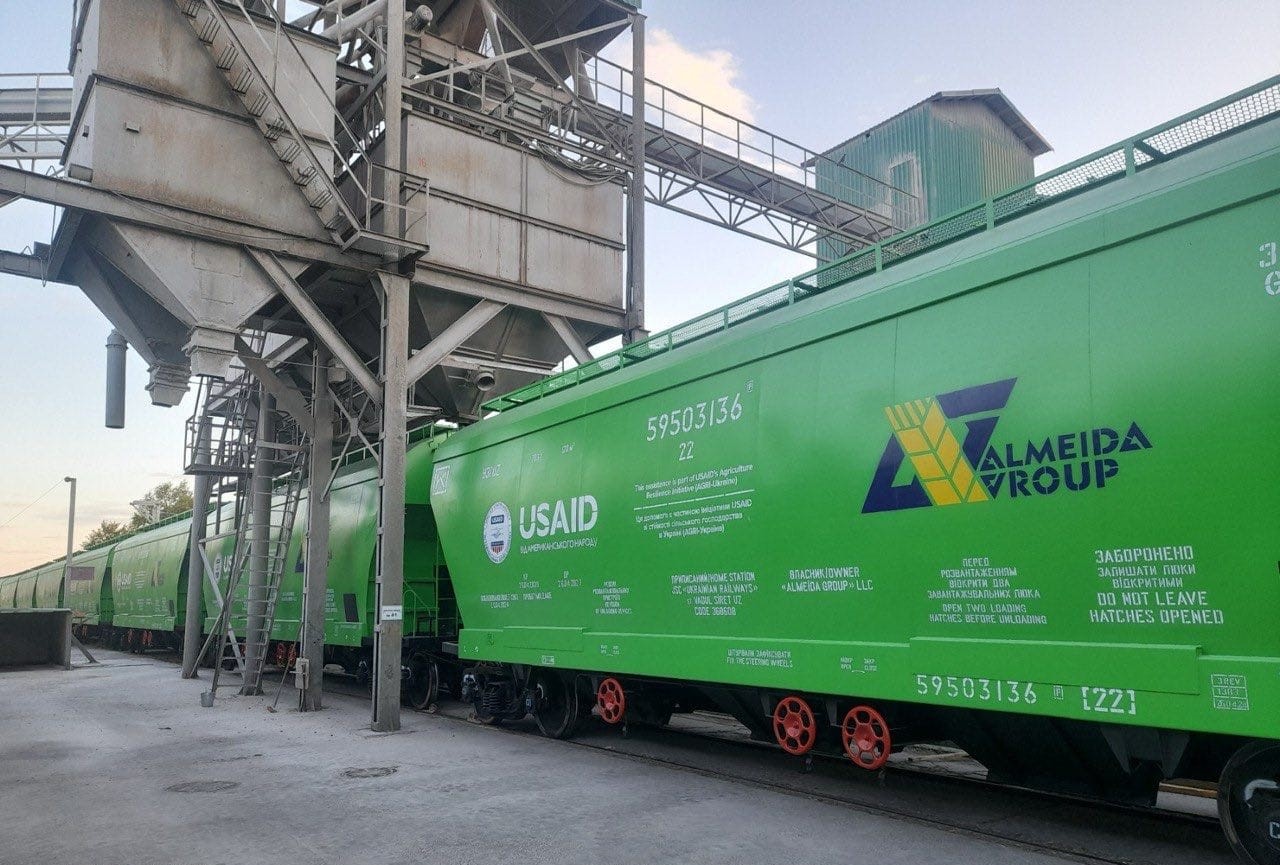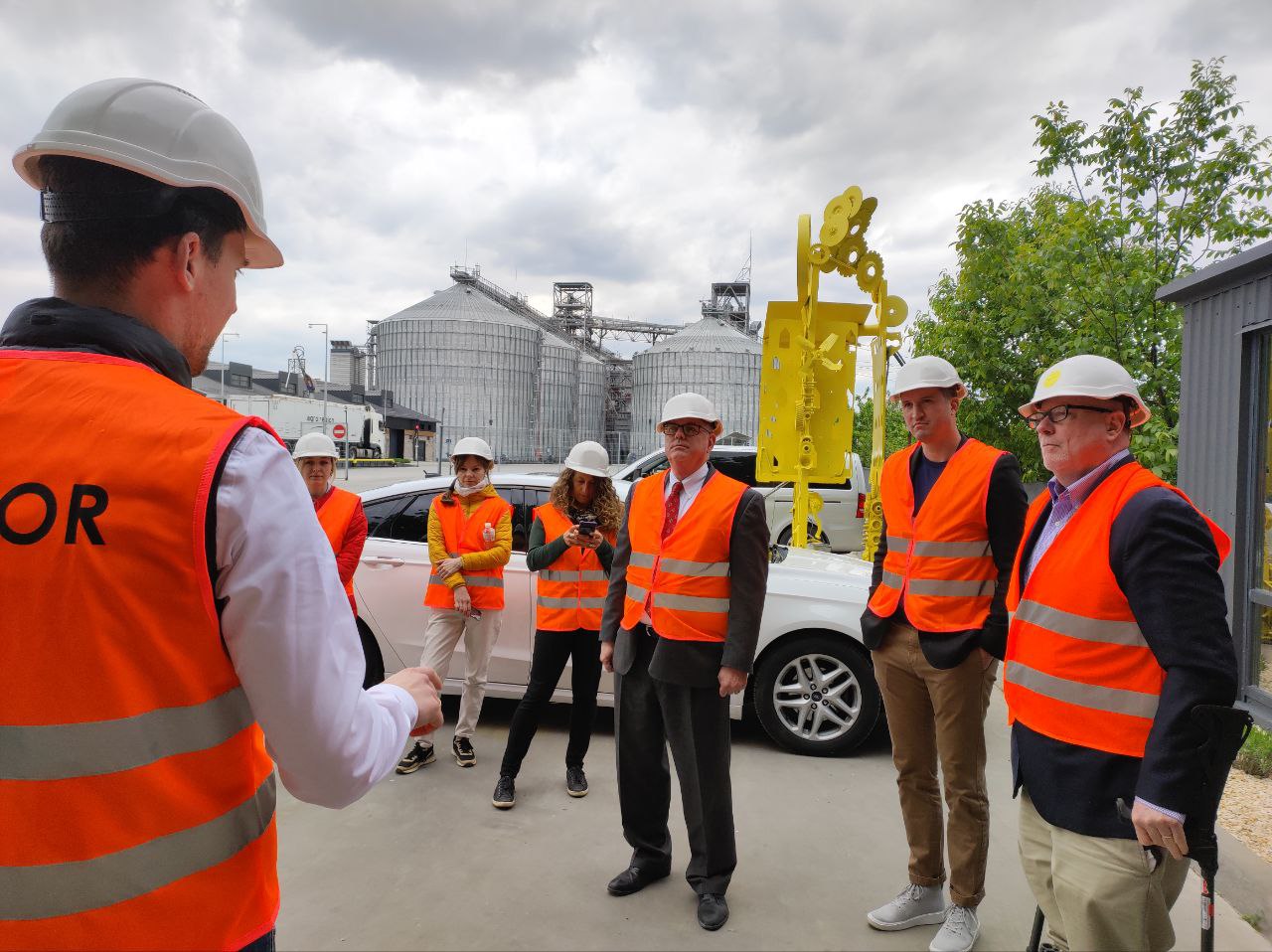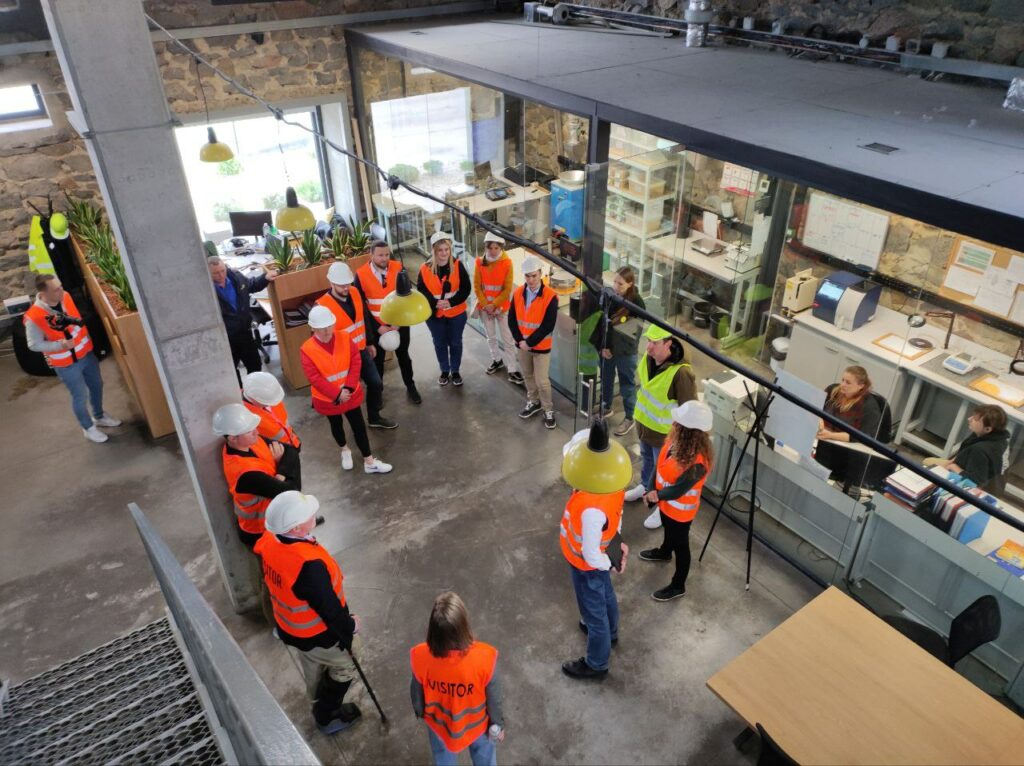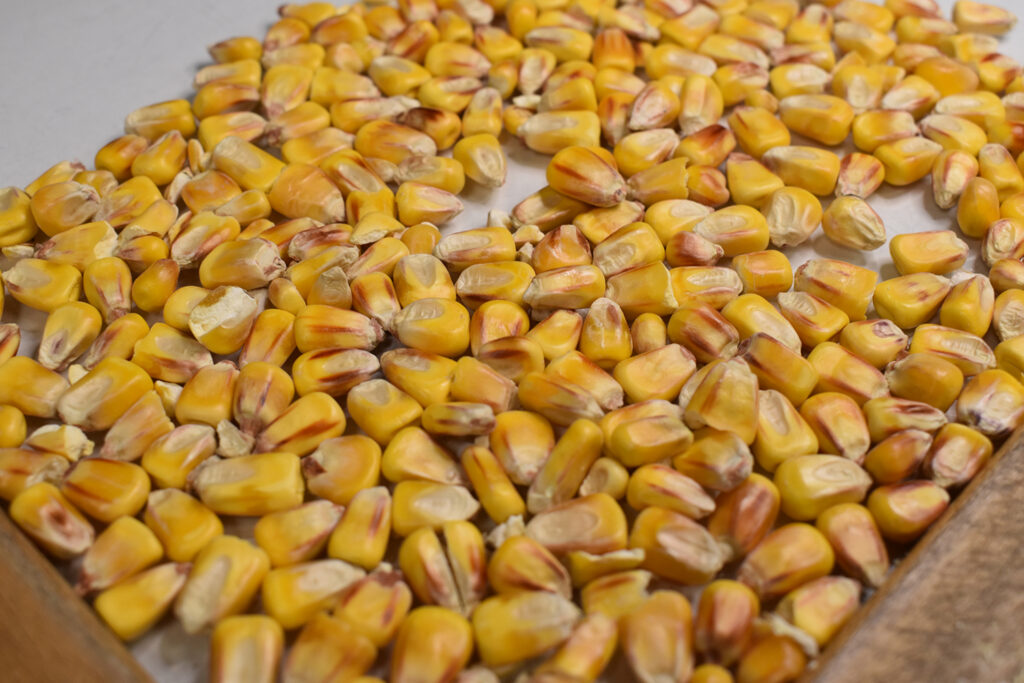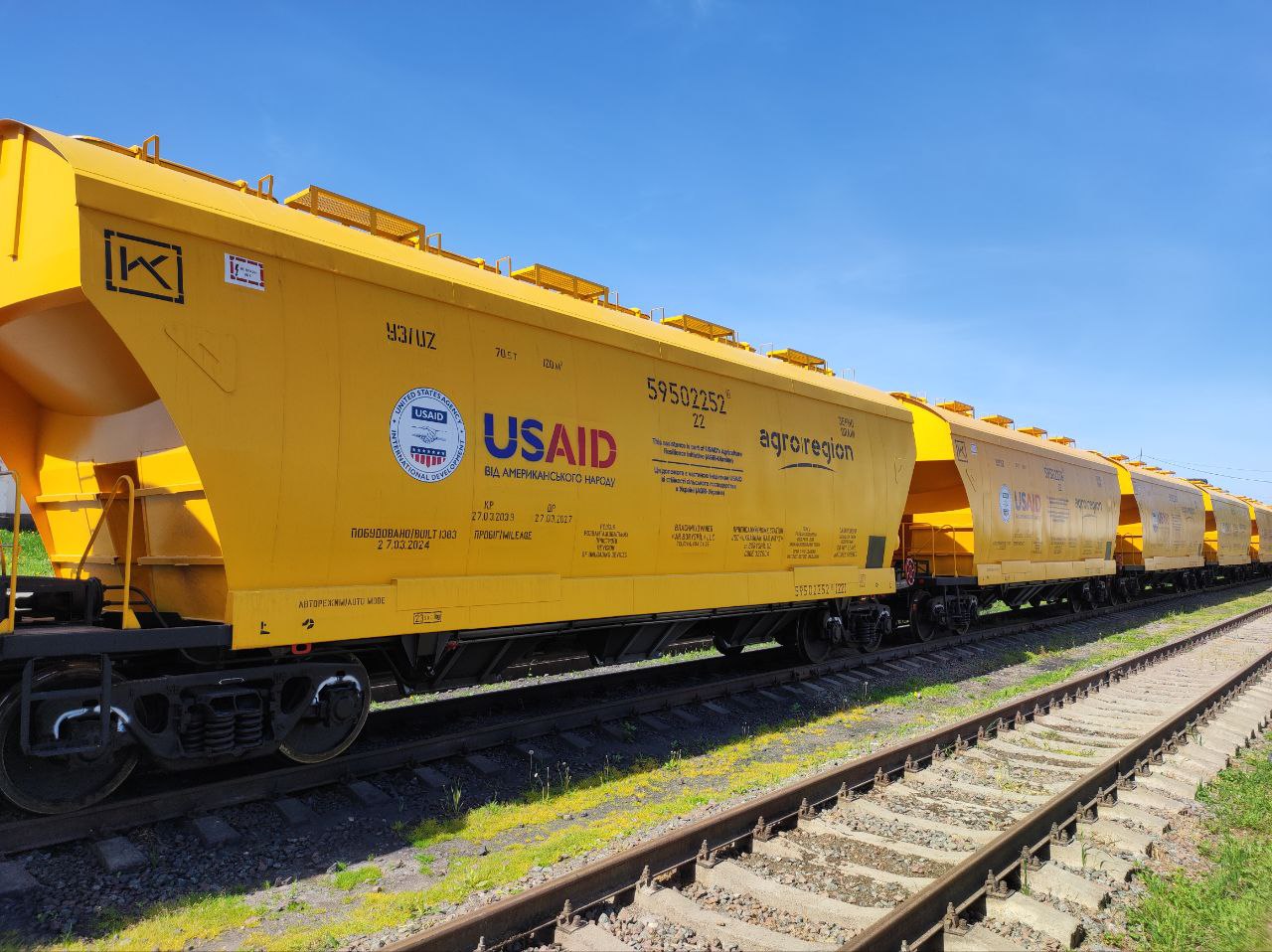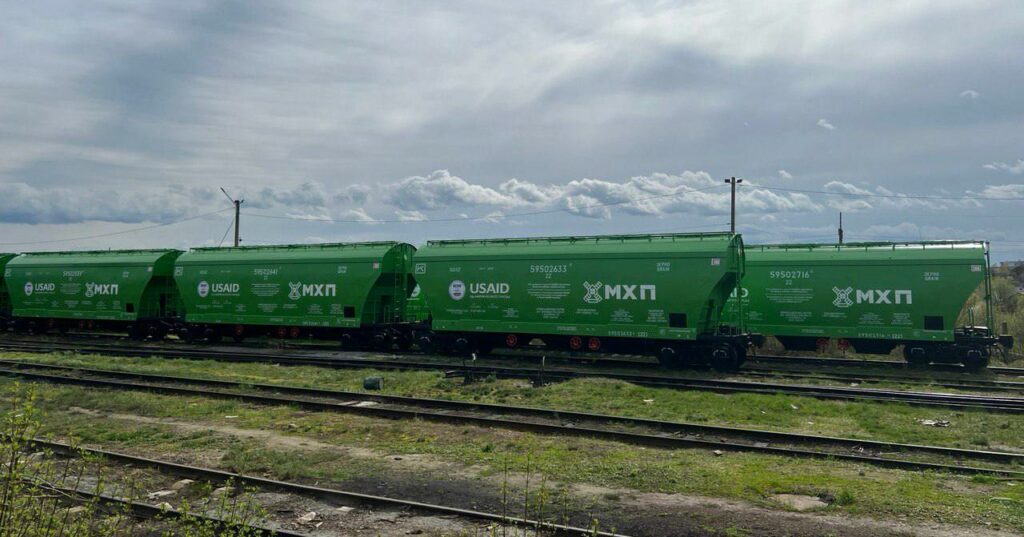On May 30-31, USAID Economic Resilience Activity (USAID ERA) and 14 of USAID ERA’s agri-exporting partners took part in the 9th annual Grain Ukraine International Conference in Kyiv. The theme this year was “Grain in the Time of Chaos” and participants focused on finding new ways (political, economic, and logistical) to promote Ukrainian agribusiness on the global market.
USAID ERA’s Supply Chain and Expert Logistics Lead, Thomas O’Callaghan and AGRI Private Partnerships Relations Specialist, Elvira Aleksyeyeva attended to meet with partners to understand the latest market trends.
The conference focused on reviewing global trends which influence Ukrainian exports to the global market, the prospect of EU integration, the challenges of the war, and creative solutions to tough logistical problems.
Petr Krogman, the owner of Agromino—USAID ERA’s partner—and President of the Czech-Ukrainian Chamber of Commerce, spoke on a panel discussion citing challenges Agromino faces during the war and ways to overcome the regional imbalance. Mr. Krogman had just come from Kharkiv Oblast, where Agromino had just sowed their fields for the season. Mr. Krogman noted that
“We sow to preserve economic life in these regions. It is necessary for the border regions to survive.”
Unfortunately, businesses like Agromino, operating in Kharkiv Oblast are severely disadvantaged. Overall, the average cost of production on fields on the eastern boarder are 40-50% higher than in the western regions of Ukraine. Many agricultural areas are now militarized zones and unfit for use and companies face additional costs to demine their land. Mr. Krogman believes that incentives and compensation programs from the government can significantly help companies continue to work near the contact line.
Another USAID ERA partner feeling the heat of the war is Nibulon. On a panel, Mykhailo Rizak, Nibulon’s Director of Interaction with Authorities discussed the negative impact of legislative changes on Nibulon’s land bank. He continued by explaining how Nibulon is reviving mined land back to a safe field suitable for cultivation and he emphasized the need to demine water areas to ensure the safety of sea vessels.
Moreover, USAID ERA’s partner Kernel, represented by Oleksandr Golovin, Commercial Director spoke about the importance of the Black Sea on a panel. Mr. Oleksandr also predicted the next marketing year will be the manufacturer’s year.
Looking forward, USAID ERA’s partner Ukrainian Grain Trading Company (UGTC) emphasized training programs which will help future businesses. UGTC’s co-owner, Serhiy Verenkiotov, was grateful for the equipment USAID provides but stressed the significance of developing labor potential at the conference.
Similarly, Kateryna Rusina, the owner USAID ERA’s partner Ascet Shipping, is looking forward to create future reliable business connections at the Grain Ukraine conference.
Assistance to agricultural producers and infrastructure companies is part of the Agriculture Resilience Initiative (AGRI) – Ukraine, implemented by the United States Agency for International Development (USAID). It aims to help Ukraine increase its capacity to produce, store, transport, and export grain.
